Head of EEL, Dr Neil Maxwell and PhD student, Rebecca Relf, were invited to present to a House of Lords Government Select Committee on Breast Cancer Symptom Management in November 2016, to talk about their up-coming research linked to heat sensitivity amongst breast cancer survivors. Following breast cancer, survivors experience intense heat reactions (hot flashes) and night sweats similar to symptoms associated with menopause that can be very debilitating and impact quality of life. In addition to pharmaceutically-based interventions to treat these symptoms, there is interest in non-pharmaceutically based methods. However, current methods have shown variable success. After hearing about the research coming out of the University of Brighton linked to applied heat-alleviation methods, the committee were keen to learn whether cooling interventions could be potential candidates to recommend post treatment.
of EEL, Dr Neil Maxwell and PhD student, Rebecca Relf, were invited to present to a House of Lords Government Select Committee on Breast Cancer Symptom Management in November 2016, to talk about their up-coming research linked to heat sensitivity amongst breast cancer survivors. Following breast cancer, survivors experience intense heat reactions (hot flashes) and night sweats similar to symptoms associated with menopause that can be very debilitating and impact quality of life. In addition to pharmaceutically-based interventions to treat these symptoms, there is interest in non-pharmaceutically based methods. However, current methods have shown variable success. After hearing about the research coming out of the University of Brighton linked to applied heat-alleviation methods, the committee were keen to learn whether cooling interventions could be potential candidates to recommend post treatment.
The committee were very encouraged by the planned research programme, offered their assistance as the project develops and have linked the research team [Neil, Rebecca, Dr Mel Flint (School of Pharmacy and Biological Sciences) and Dr Louisa Beale] with a Brighton-based Oncologist Consultant. The meeting was held at the Breast Cancer UK headquarters in London and was nevertheless a great experience for both Neil and Rebecca to showcase the research activity of the Environmental Extremes Lab.
The presentation was a bit of a baptism of fire for Rebecca who had only started her PhD seven weeks beforehand. However, she did an excellent job and the committee were very encouraged by the planned research programme, offered their assistance as the project develops and have linked the research team [Neil, Rebecca, Dr Mel Flint (School of Pharmacy and Biological Sciences) and Dr Louisa Beale] with a Brighton-based Oncologist Consultant. Unfortunately, the meeting was moved from Westminster to the Breast Cancer UK Headquarters, but was nevertheless a great experience for both Neil and Rebecca to showcase the research activity of SESAME’s Environmental Extremes Lab.







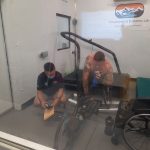


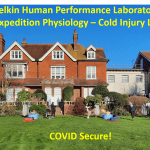








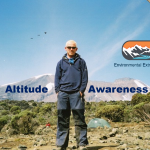
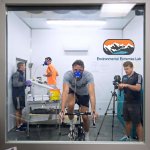

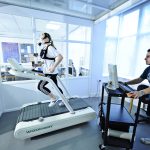









Leave a Reply